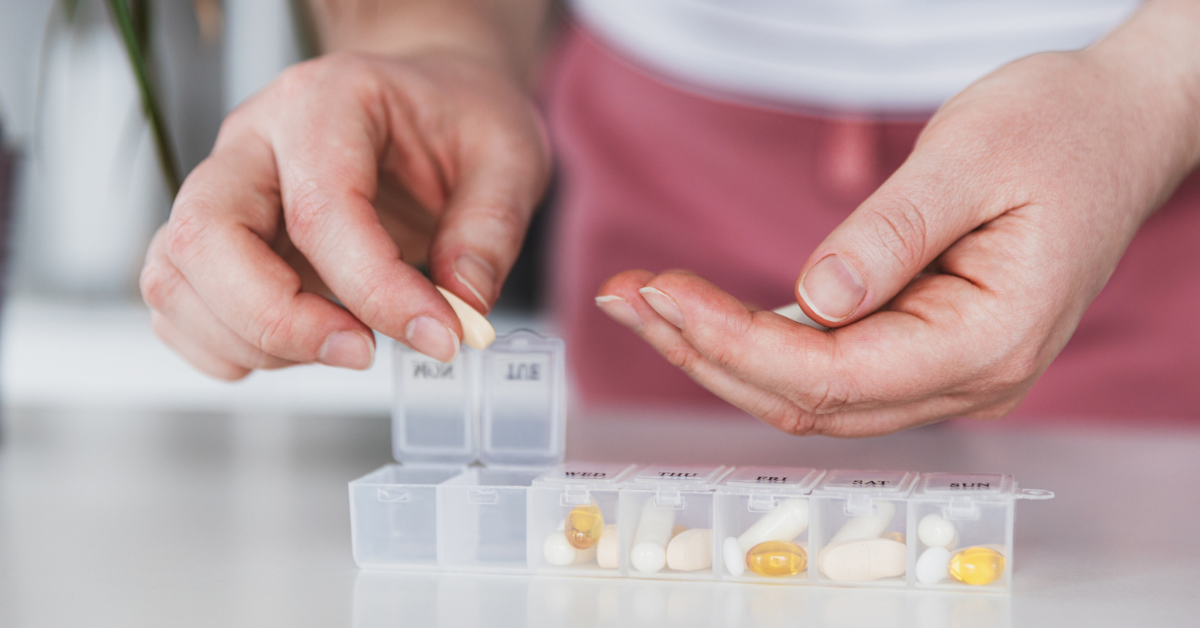Starting a new medication, managing multiple prescriptions and storing them securely can be challenging. To avoid common mistakes, it’s important to talk to your doctor about prescription medication safety, proper dosages and potential symptoms.
“I recommend you have a conversation with your provider to make sure they know what medications you’re taking so you can discuss possible interactions,” says Tidelands Health ambulatory care pharmacist Brent Meck. “Sometimes, people may not remember why they’re taking some medications, or they end up taking another medication to treat side effects.”
It’s also important to keep your list of medications, including herbs and supplements, up to date.
“At least once a year, you should take all your medications to your provider. This will help keep an accurate list, but be sure to keep it updated throughout the year,” Meck says.
Medication mistakes are common — it can be easy to take the wrong medication, take too much, miss a dose or experience a harmful interaction.
More than 131 million people — 66 percent of adults in the U.S. — use prescription medications with nearly 30 percent taking five or more medications daily, so mistakes are common.
Here are 10 tips to help you better manage medications:
Talk to your doctor or pharmacist about any new drug you’ve been prescribed to confirm the exact dose and when best to take it.
Some medications should be taken on an empty stomach or with food. Your physician or pharmacist needs to know of other medications you are taking, including over-the-counter medications, to alert you of potential interactions and help you best manage your health.
To help you remember to take your medicine and stick to a routine, set a timer on your phone or keep the medication next to things you use daily, such as your toothbrush or alarm clock.
A pill organizer is a great way to manage weekly or daily doses. For multiple medications that require dosing at different times, consider choosing one with compartments for morning, noon or night.
Make sure all your providers, including your pharmacist, are on the same page with what you’re taking. It’s wise to carry a list with you and keep it up to date. Include prescribed and over-the-counter medicines on the list and review the list regularly.
Discuss any symptoms you experience with your doctor first before deciding to stop a medication. Some medications require a weaning process. Additionally, it may take a few days or weeks for your body to adjust to a new medicine.
Some medications are sensitive to humidity, moisture or heat, so bathrooms aren’t typically the best location for storing them. Medications are best kept in a dry, cool place out of reach of children.
Don’t take medicine in the dark, when tired or distracted. You could wind up taking the wrong medicine or taking too much.
Medications have a shelf life. Taking them beyond their expiration date could cause harmful side effects, an interaction or render them ineffective.
Some facilities have drug take-back programs for expired or unwanted medications. You can drop off unwanted or expired medications any time at Tidelands Health hospitals.
Secure kiosks for medication disposal are available near the main entrances at Tidelands Georgetown Memorial Hospital and Tidelands Waccamaw Community Hospital.
Flushing them down the toilet or the sink drain is not advised because doing so could cause environmental concerns.
If you’ve accidentally taken too much of a medication or the wrong one, stay calm and call Poison Control (800-222-1222) to discuss the situation. In case of emergency, call 911 immediately.
